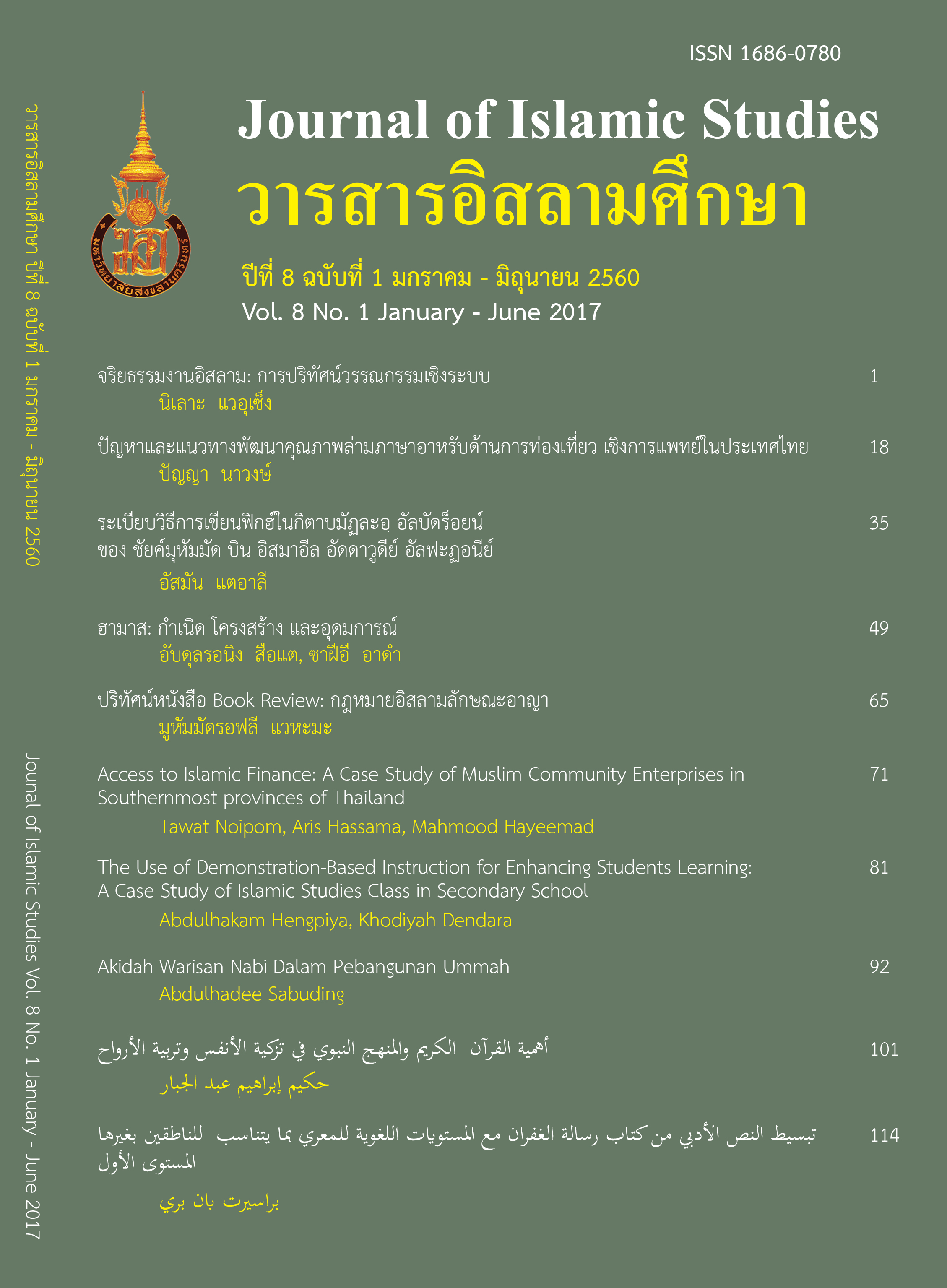Access to Islamic Finance: A Case Study of Muslim Community Enterprises in Southernmost Provinces of Thailand
Keywords:
Access to Islamic Finance, Community Enterprise, Southern ThailandAbstract
Many advocates argue that access to finance is an important component of economic prosperity in a community. In Muslim communities, financial services must conform to the Islamic principles. In line with this, one may conclude that access to Islamic financial services in the southernmost provinces of Thailand may play a key role in the improvement of well-being of the Muslims in the area. This article investigates the access to Islamic financial services among Muslim community enterprises that was supported by an international development organization. A quantitative survey method was adopted using questionnaires as the tool for data collection. The data was descriptively analyzed. The findings in this study show that the members of Muslim community enterprises are aware of the existence of Islamic financial institutions and have general information about their services. They, however, do not have detailed information about these services. At the moment, they do not apply for any of the Islamic financial services because they do not need one. This is an important factor for voluntary financial exclusion. Furthermore, they are in the opinion that involuntary exclusion factors such as risk, discrimination, contractual information and product features do not contribute towards their unwillingness to use Islamic financial services. Hence, it may be concluded that the issue of access to finance among the Muslim community enterprises in the southernmost provinces of Thailand is a voluntary exclusion, and not supply-side factors as being evident in some other countries. It is recommended that other sources of Islamic finance such as zakat, waqf, sadaqah could be suitable financing sources for the community enterprises in the southernmost provinces of Thailand since these sources are available for improving the welfare of the poor who constitutes the majority of members of these enterprises.
References
Ahmad, Z. (2008). The theory of riba. In: SHEIKH ABOD, S. G., SYED AGIL, S. O. & GHAZALI, A. H. (eds.) An introduction to Islamic economics & finance. Revised ed. ed. Kuala Lumpur, Malaysia :: CERT.
Asutay, M. (2007). Conceptualisation Of The Second Best Solution In Overcoming The Social Failure Of Islamic Banking And Finance: Examining The Overpowering Of Homoislamicus By Homoeconomicus. IIUM Journal of Economics and Management, 15, 167-195
Besley, T. (1994). How do market failures justify interventions in rural credit markets? The World Bank Research Observer, 9, 27.
Quran, Surah Al-Baqarah (2:275)
Haron, S. & YAMARUDING, K. (2003). Islamic Banking in Thailand: Prospects and Challenges. International journal of Islamic Financial Services, 5.
Kempson, E., CASKEY, J., WHYLEY, C. and COLLARD, S. (2000) In or out? London: Financial Services Authority.
Ledgerwood, J. (1999). Microfinance handbook: An institutional and financial perspective, World Bank Publications.
Noipom. T. (2013). Assessing the performance and scope of Islamic microfinance in Thailand: development and prospect. Unpublished doctoral thesis, Durham University.
Wilson, R. (2007). Making Development Assistance Sustainable through Islamic Microfinance. IIUM Journal of Economics and Management, 15, 177-196
Downloads
Published
How to Cite
Issue
Section
License
All articles Published in The Journal of Islamic Studies are author’s opinions, and not the responsibility of the Faculty of Islamic Sciences nor the editorial board. However any citation should be referred to the journal.


